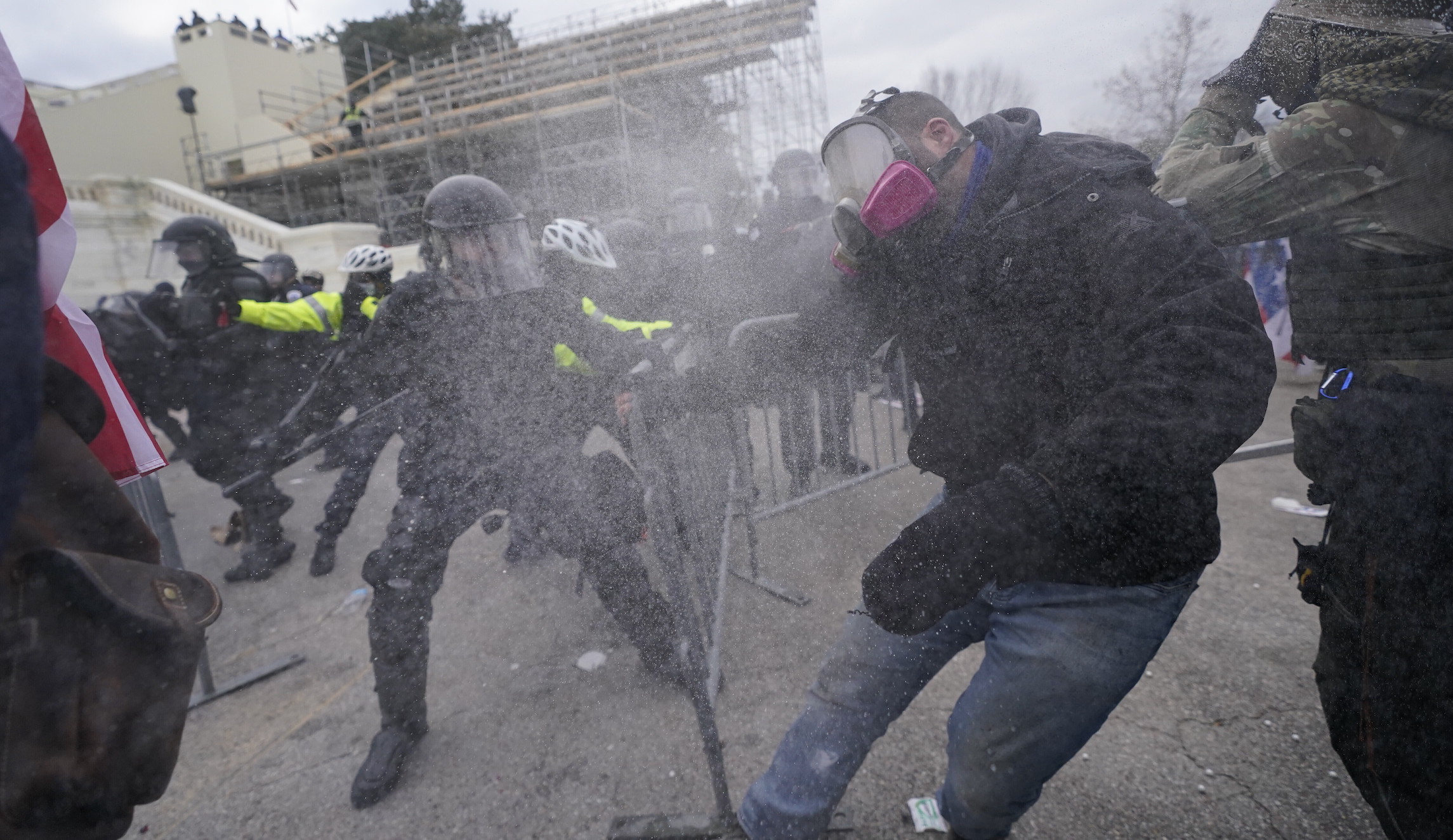For the second time this week, President Joe Biden is differentiating himself and his party from Republicans as Rep. Kevin McCarthy (R-CA) appears unable to whip the votes he needs to become speaker of the House.
Simultaneously, Biden has to strike a delicate balance, the president at risk of overpoliticizing the second anniversary of Jan. 6, 2021, a historic event that is itself inherently political, after pledging to unite the country following former President Donald Trump.
CROW MEETS JOE: BIDEN AND MCCONNELL’S TEMPORARY TRUCE
McCarthy’s speakership row will overshadow this year’s anniversary of the Capitol being ransacked by protesters seeking to prevent lawmakers certifying the 2020 election’s results, according to Republican strategist Susan Del Percio, a Trump critic, and other GOP strategists. McCarthy has been unable to notch the 218 votes necessary to become speaker despite multiple ballots.
“This leadership fight [is] happening in the very place with the very people who supported the insurrection,” Del Percio told the Washington Examiner, not distinguishing between Republicans who voted against certifying the 2020 Electoral College votes and the ensuing riot. “For some Republicans, they’d rather have the speaker battle than deal with Jan. 6. I say that a little tongue in cheek but not really.”
“In the far future, it will be recognized a little differently, but in the short term, it really depends on what the ‘election deniers’ do,” she said.
Del Percio disagreed with arguments that contend Democrats ceded the Jan. 6 high ground last year when strategists, including from the Democratic Congressional Campaign Committee, elevated so-called election deniers in Republican primary campaigns. They did so believing those candidates would be easier for Democrats to beat in their respective general contests.

Democrats and Republicans such as former Reps. Liz Cheney (R-WY) and Adam Kinzinger (R-IL) have guaranteed Jan. 6 has remained in the public’s political conscience. Their House select committee, which investigated the incident through prime-time hearings until the panel was dissolved with the conclusion of the last Congress, incorporated Trump in their criminal referrals to the Justice Department.
The White House has specifically cited protecting democracy with helping Democrats outperform expectations in the 2022 midterm elections. Instead of an anticipated red wave, Democrats expanded their Senate majority and held House Republicans to a historically small margin of victory not recorded since 1931.
“Some have focused on fears about Republican extremism. Others have pointed to the role that the issue of choice played after the Dobbs decision,” White House senior adviser and longtime Biden aide Mike Donilon wrote in an end-of-year memo. “Others have noted how much stronger the concern for our democracy was among the voters than the press, the pundits, and the insiders understood.”
Biden himself promised during his Jan. 6 address last year, delivered in the National Statuary Hall of the Capitol, that he would not “shrink” from what was “brought to this Capitol one year ago today.”
“I will stand in this breach. I will defend this nation. And I will allow no one to place a dagger at the throat of our democracy,” he said.
At the same time, Democratic National Committee Chairman Jaime Harrison implored his party not to “sit idly by” and permit Jan. 6 “to be whitewashed and rewritten.”
“We must show up every day and ensure that our nation never forgets the truth of what happened,” he wrote. “This was a direct attack fueled by hatred, enabled by the former president, and perpetuated by lies.”
White House press secretary Karine Jean-Pierre defended Biden this week from criticism he has exacerbated political divisions — for instance, by likening “MAGA” Republicanism to “semifascism.”
“The president is going to call out what he sees. Right? That is his job as a president,” Jean-Pierre told reporters aboard Air Force One en route to Kentucky for Biden’s appearance with Senate Minority Leader Mitch McConnell (R-KY) to promote their bipartisan infrastructure bill.
“He believes there’s still possibilities to bring the country together. And that’s a big reason why he was elected back in 2020,” she said. “So the president is going to continue to work on that as well. But he’s also going to call things out.”
Previewing Biden’s Jan. 6 address this Friday, Jean-Pierre repeated the president’s description of what transpired as “one of the darkest days” in the nation’s history.
“Sometimes one of the darkest days, I should say, can lead to light and hope,” she added. “On January 6th, there were continued, countless examples of Americans who showed up and showed those best values of who we are.”
The White House announced one day later that Biden would deliver this year’s address in the East Room and additionally award his first Presidential Citizens Medals, one of the country’s highest civilian honors, to 12 people who “made exemplary contributions to our democracy surrounding Jan. 6.”
CLICK HERE TO READ MORE FROM THE WASHINGTON EXAMINER
“These 12 heroes demonstrated courage and selflessness during a moment of peril for our nation,” a White House staffer said. “They include Capitol Police, Metropolitan Police, election workers, and officials at the state and local level.”
